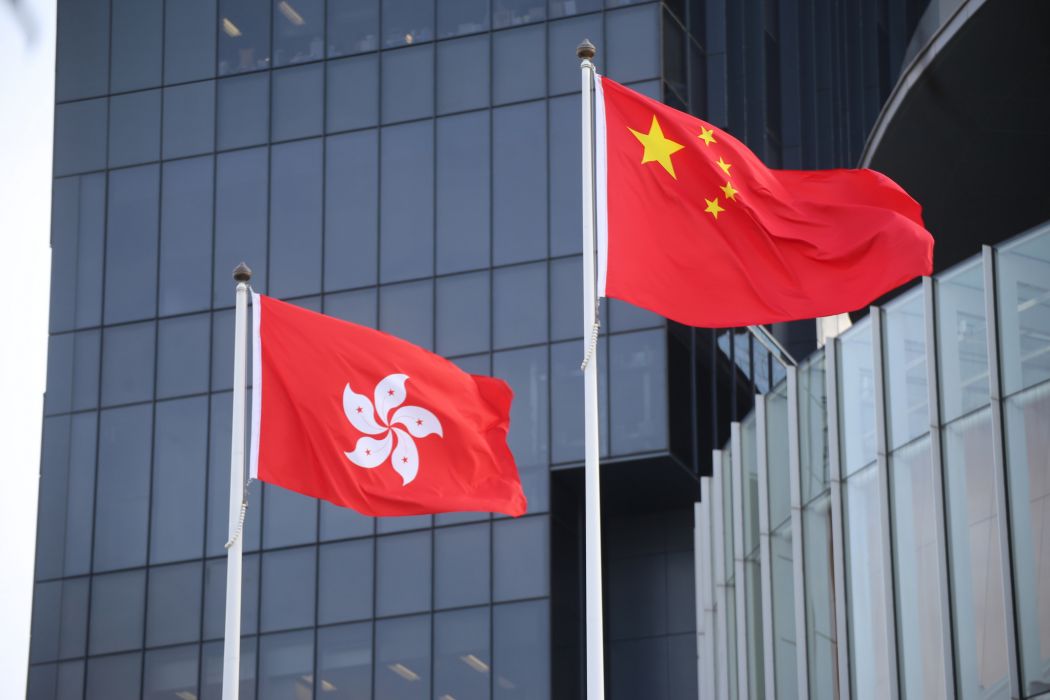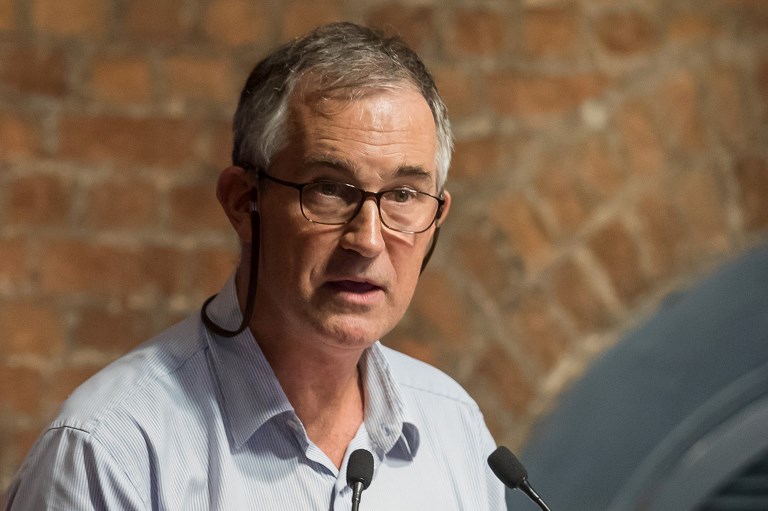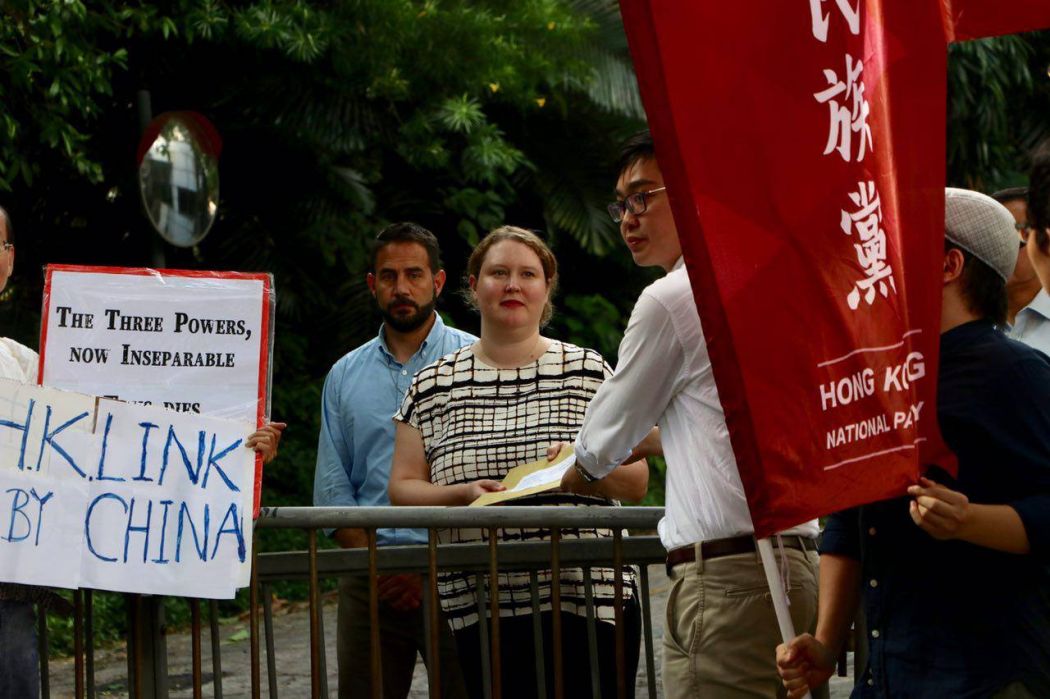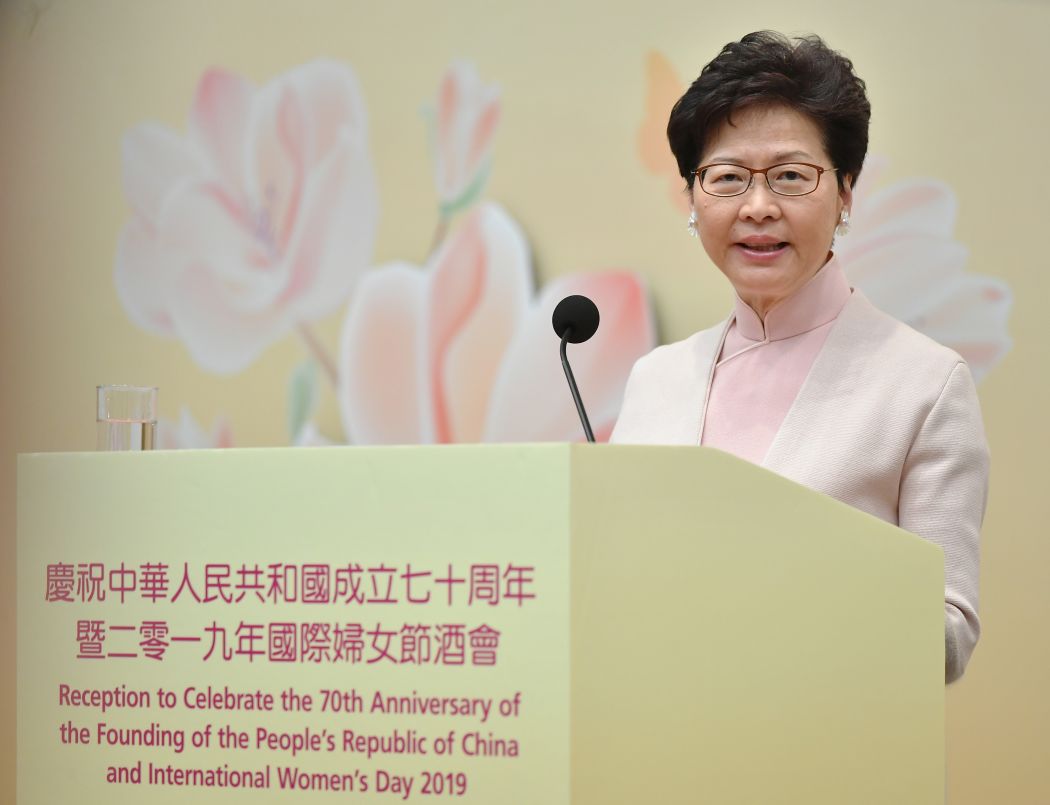The US State Department’s annual report on Hong Kong has said China’s intervention in the city’s affairs has increased, but the city still has sufficient autonomy to justify continued special treatment by the US.
Under the United States-Hong Kong Policy Act of 1992, Washington’s special policy towards the city – which is different from its policy towards China – is only justified if Hong Kong is “sufficiently autonomous.”
The report said the Beijing government had implemented, or instigated, a number of actions that appeared inconsistent with its commitments in the Basic Law, and in the Sino-British Joint Declaration of 1984, to allow Hong Kong to exercise a high degree of autonomy.

“The tempo of mainland central government intervention in Hong Kong affairs – and actions by the Hong Kong government consistent with mainland direction – increased, accelerating negative trends seen in previous periods.”
“As a general matter, Hong Kong maintains a sufficient – although diminished – degree of autonomy under the ‘one country, two systems’ framework to justify continued special treatment by the United States for bilateral agreements and programs per the Act.”
Business concerns
The report mentioned the de facto expulsion of Financial Times Asia News Editor Victor Mallet three times, and cited the American Chamber of Commerce’s statement asking Hong Kong to explain the incident to the international business community.
“Growing political restrictions in Hong Kong may be straining the confidence of the international business community,” the report said.

The report cited incidents such as the banning of the pro-independence Hong Kong National Party, candidates including Lau Siu-lai and Eddie Chu being barred from elections, the cancellation of a Chinese dissident artist Badiucao’s exhibition, and the cancellation of exiled writer Ma Jian’s talk, which was reversed later.
“During the reporting period, policies and practices of the mainland central government adversely impacted Hong Kong in multiple areas, and mainland pressure resulted in new constraints on Hong Kong’s political space,” it said.
“In some particularly concerning instances, Hong Kong authorities took actions aligned with mainland priorities at the expense of human rights and fundamental freedoms. There were particular setbacks in democratic electoral processes, freedom of expression, and freedom of association.”
Fugitive surrender
Last year, the US report said Hong Kong’s chief executive turned down a US request to surrender a fugitive “at the behest” of the central government in 2017, the first case of its kind since the Handover in 1997. The detainee in question was released into Beijing’s custody.

This year’s report said the Hong Kong authorities assisted with two fugitive surrender cases, but there was no new information about the case mentioned last year.
“The mainland central government has still not provided information on the disposition of its case against an individual sought by the [US government] that the Hong Kong government detained but released in October 2017 on the basis that the individual was subject to parallel prosecution by mainland China authorities,” it said.
Although the report covered the period between last May and this month, it did not mention the recent concerns over the Hong Kong government’s plan to amend laws to allow one-off extraditions to the mainland.

The report cited other incidents such as the denial of a port call by the US ship Wasp in October 2018, saying that it broke with Hong Kong’s tradition as an open port.
Pro-Beijing lawmaker Holden Chow said it was appropriate for the US to maintain the special treatment for Hong Kong: “Hong Kong and the US have deep economic relations and it is mutually beneficial.”
But he said the criticism in the report over Beijing’s intervention in Hong Kong was false: “I hope the US can make judgments on basis of objective facts, and will not use its biased opinion to intervene in Hong Kong’s internal affairs.”
Pro-democracy activist Joshua Wong said the US had not completely flipped its policy towards Hong Kong but the report showed it was getting tougher in its position.
“I believe the US will not be soft following a series of incidents harming Hong Kong people’s human rights and freedoms,” he said.
He said he hoped the US legislature would start work on the Hong Kong Human Rights and Democracy Act soon.
“It is more powerful to use substantial policies and laws to support Hong Kong’s high degree of autonomy, compared with monitoring the situation and issuing statements,” he said.
Foreign ‘interference’
In the statement on Friday, a Hong Kong government spokesperson said that the Basic Law had been strictly implemented and the One Country, Two Systems principle had been fully and successfully implemented.
“However, relevant international human rights conventions and court cases have clearly pointed out that freedom of speech is not absolute… Any suggestion for ‘Hong Kong’s independence’ is a blatant violation of the Basic Law and a direct affront to the national sovereignty, security and territorial integrity of the PRC.”
It said that other concerns mentioned in the report were dealt with in accordance with the law, adding that foreign governments should not interfere in the city’s internal affairs.
